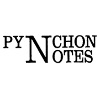Abstract
Nietzsche and Pynchon have, as has been said recently of Nietzsche and Emerson, an "elective affinity" (Stack). This affinity is especially close on questions of truth and knowledge, and closest in Nietzsche's later philosophy and Pynchon's Gravity's Rainbow (hereafter GR). While Nietzsche's early theories of truth and knowledge have won most attention recently, his later writings – from On the Genealogy of Morals (hereafter GM) onward – reject these theories as being indebted to a Schopenhauerian representationalism and pursue the claim that knowledge is perspectival. In this essay I argue for an affinity between Nietzsche's later philosophy and GR on questions of truth and knowledge. In particular, I focus on the ways GR rejects theories of truth and knowledge based on objectivity and coherence, and offers instead a theory of truth and knowledge similar to Nietzsche's perspectivism.
How to Cite:
Neighbors, J., (2008) “Ilse/Lies: Nietzsche and/in Pynchon”, Pynchon Notes , 183-194. doi: https://doi.org/10.16995/pn.35
Downloads:
Download PDF

